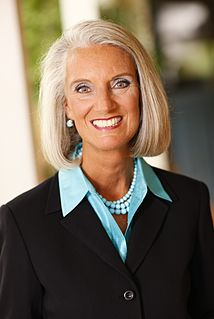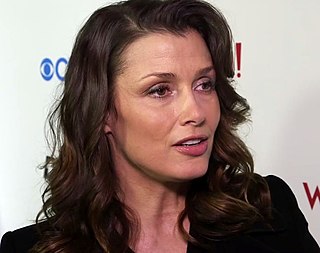A Quote by Nick Cave
I was reading The Bible a lot through my 20s, mostly the Old Testament, just because I was knocked out by the language and the stories. I felt that the God being talked about there, who was this insane, vindictive patriarch - it was kind of thrilling, and titillated something in me at the time.
Related Quotes
The Bible is forbidding when you start to read it. The language is odd. The stories start and stop herkily-jerkily. The characters behave in inexplicable ways. It takes a little bit of time to get into the rhythm of the book. I found reading the first 15 chapters of Genesis very very difficult. Once I got past there, I loved reading, and found it very easy. When you get used to the Bible, it becomes thrilling to read (like any great book - I just had exactly the same experience with the Odyssey).
There's great poetry in the Old Testament and the New Testament. And I'm not interested in trying to prove whether this paragraph is as it was or as it should have been or should not be. My pursuit is to find the truth for me in those stories and make them apropos. The important thing is that people wrote them. These were inspirational stories, and you got to see them that way. If you don't, you'll get in trouble. So I'm not going to spend a lot of time trying to find out whether or not Mary was a virgin. What do I care about Mary being a virgin?
I studied Comparative Literature at Cornell. Structuralism was real big then. The idea of reading and writing as being this language game. There's a lot of appeal to that. It's nice to think of it as this playful kind of thing. But I think that another way to look at it is "Look, I just want to be sincere. I want to write something and make you feel something and maybe you will go out and do something." And it seems that the world is in such bad shape now that we don't have time to do nothing but language games. That's how it seems to me.
I feel like in the reading I did when I was growing up, and also in the way that people talk and tell stories here in the South, they use a lot of figurative language. The stories that I heard when I was growing up, and the stories that I read, taught me to use the kind of language that I do. It's hard for me to work against that when I am writing.
At about the age of seven … I wrote exactly the kinds of stories I was reading: All my characters were white and blue-eyed, they played in the snow, they ate apples, and they talked a lot about the weather: how lovely it was that the sun had come out. This despite the fact that I lived in Nigeria; we didn’t have snow, we ate mangoes, and we never talked about the weather, because there was no need to.
There's a lot of great stories and a lot of great values in the Holy Bible, and I actually relate to a lot of them. The character, the idea, or the part of my personality that I describe as Antichrist Superstar, is a lot like Lucifer in the Bible. Someone who was kicked out of heaven because he wanted to be God
Why do you think the Bible has survived thousands of years of tumultuous history Why is it still here Is it because its stories are such compelling reading Of course not...but there is a reason. There is a reason Christian monks spend lifetimes attempting to decipher the Bible. There is a reason that Jewish mystics and Kabbalists pore over the Old Testament. And that reason Robert is that there exist powerful secrets hidden in the pages of this ancient book...a vast collection of untapped wisdom waiting to be unveiled.
I actually dislike, more than many people, working through literary allusion. I just feel that there's something a bit snobbish or elitist about that. I don't like it as a reader, when I'm reading something. It's not just the elitism of it; it jolts me out of the mode in which I'm reading. I've immersed myself in the world and then when the light goes on I'm supposed to be making some kind of literary comparison to another text. I find I'm pulled out of my kind of fictional world, I'm asked to use my brain in a different kind of way. I don't like that.
[ My mother] went, OK, I've read the Bible. I've read the Bible again. I'm reading the Bible again. OK, let me - where does this Bible come from? What does this Old Testament speak - who are the Israelites? Who - what is Judaism? And then she went, and I'm going to study that. And, you know, she wanted to almost get to the core.
I love telling stories. I think of myself as a storyteller, and I don't feel bound by being just a singer or an actress. First, I'm a storyteller, and history is stories - the most compelling stories. There is a lot you can find out about yourself through knowing about history. I have always been attracted to things that are old. I have just always found such things interesting and compelling.
One of my great experiences in life was to be interviewed on a late-night talk show by a guy named Tom Snyder. He was interviewing me on a book I had written on the New Testament of the Bible called Rescuing the Bible from Fundamentalism, and we talked about the dating of the books of the New Testament, and I said, "Well, the consensus is that the gospels were written some forty to seventy years after the crucifixion." And he stopped me and said, "Wait a minute, Bishop, that means they couldn't have been written by eyewitnesses."
The good reviews that people have told me about through the years haven't really helped me do my job. So it's kind of like, if your hair turns out right you want to go out, you don't just want to stay in and look in the mirror. That's kind of what reading a review is like to me; it's like reveling in something that's just one night.




































